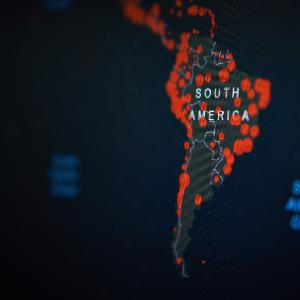During the LMU Latin America Online Dialogues Latin American scientists from diverse disciplines discuss with their partners at LMU Munich how the COVID-19 pandemic has impacted their academic fields and which challenges societies and academic communities are facing at the moment.

© AdobeStock / moinzon
Speaker:
- Prof. Montserrat Sagot, Universidad de Costa Rica, San Pedro, Costa Rica
- María Nieves Rico, author and consultant in the area of gender politics and human rights
- Prof. Paula-Irene Villa Braslavsky, Faculty of Social Sciences, Department of Sociology, LMU Munich
What started as a severe health emergency rapidly evolved into a multidimensional global crisis of unseen repercussions. The COVID-19 pandemic hastily became a global public health challenge severely impacting entire economies, markets, and livelihoods and irrupting the very foundations of our daily and social lives. Countermeasures against the quick spread of the virus have disrupted and transformed the ways we work, interact, socialize, produce, and reproduce.
From initiating a “Great Transformation” to being the almost too hopeful “Great Equalizer”, much has been said about the pandemic and the profoundly impacting and long-lasting effects on economy, politics, society, and the individual. Nearing two years into this global challenge, one remains clear: the pandemic affects individuals, groups, communities, and nations differently and in many cases reproduces and aggravates already existing structures of inequality. The virus might not discriminate while infecting, but the political responses and subsequent social repercussions unequivocally affect some more than others.
Far from being the “Great Equalizer”, the pandemic has proven to be the opposite. The effects are in no way the same for every-body, neither from a biological, medical, clinical, psychological, nor economic, occupational, political, or social point of view.
The ways the virus itself or the countermeasures against its spread impact the livelihood of many worldwide have exacerbated existing inequalities, such as those between men and women. This is especially evident in, for example, the context of care, where women have had to (re-?) assume the roles of caregivers and educators while in many cases in combination with their work duties, this time at home in the context of the introduction of alternative ways of working and producing, such as Home Office. The balancing act of productive and reproductive work takes on a new character to the extent that the resurgence of “traditional” gender roles has been brought up as a phenomenon to be observed.
The re-domestication of women and the exacerbation of gender inequalities as evidenced in the disfavourable evolution of gender gaps (gender pay gap, gender time gap, gender care gaps) since the pandemic started are aggravated by a worrying increase in levels of physical and psychological violence against women in the context of the pandemic.
This session deals with the ways in which the pandemic and the countermeasures in place against it have impacted societies in Latin America and Europe primarily focusing on aspects related to the question of gender, care, and other types of socially unequal structures and shedding a light on how this affects different groups of people, nations, and regions.
Hosted by:
- Fausto Ignatov Vinueza, Rachel Carson Center for Environment and Society, LMU Munich
This event is open to students, researchers and the public and will be held in English via Zoom.
Please register here.
The LMU Latin America Network was set up by reseachers at LMU as a framework designed to facilitate thematic and yet interdisciplinary collaborations with partners based in the region. Supported by the International Office of LMU, the network forges new links and strengthens synergies in the area of research, teaching and capacity building between LMU and its partners in Latin America.
